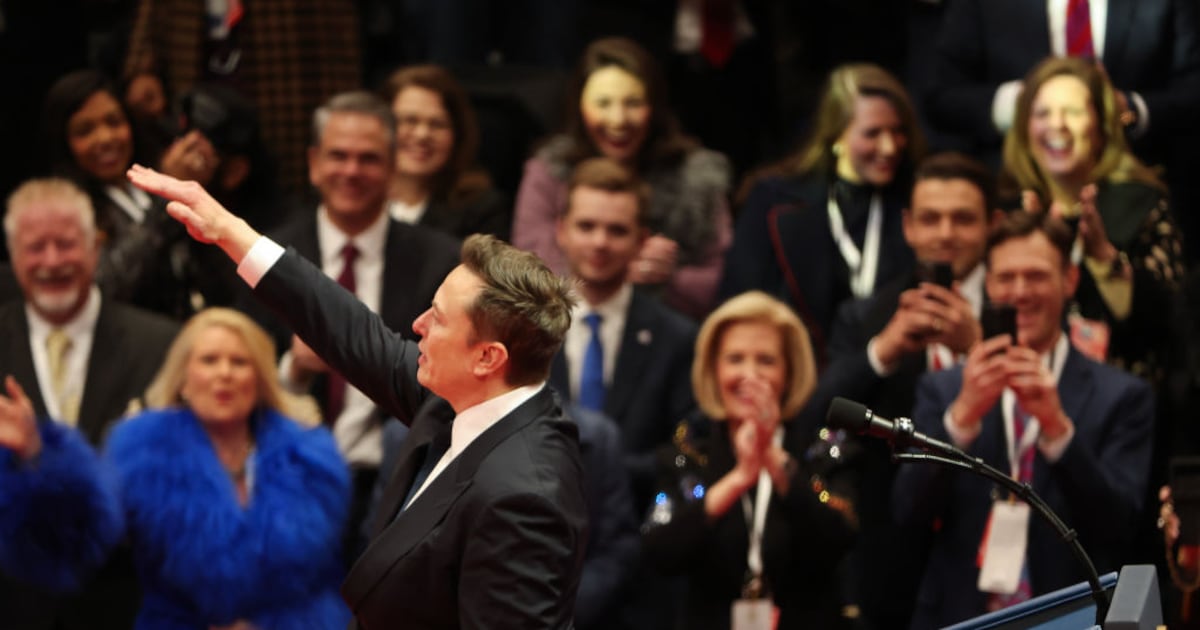A heated special election in Georgia is turning into a proxy battle between Republican forces loyal to President Donald Trump and a conservative group that has long been a thorn in his side.
The race to fill Health and Human Services Secretary Tom Price’s Georgia House seat is pitting the Club for Growth, a free market group that has criticized Trump since he declared his candidacy for president, against a network of political committees, dark money groups, and seasoned Republican operatives loyal to the president.
The contest is an early test of the political apparatus seeking to keep Republicans in line behind Trump’s agenda. But the candidates themselves are almost secondary to the outside groups sniping at each other in attack ads in the race.
The race’s war of words has produced an odd dynamic: outside spending groups are using candidates as vessels for their rivalry, instead of the other way around.
Republican businessman Bob Gray, one of the eighteen candidates in Tuesday’s “jungle primary” in Georgia’s sixth district, has overtly aligned himself with the president on the campaign trail. He hired the Trump campaign’s top Georgia operative, declared he would run “on the Trump agenda,” and filmed an ad in which he literally drained a swamp.
But Gray’s opponents have pointed to past criticism of Trump on social media, and his shifting positions on the American Health Care Act, the Trump-backed Obamacare repeal bill that GOP leaders pulled from the House floor last month after it failed to marshal sufficient Republican support.
Trump blamed the conservative Freedom Caucus bloc for sinking the bill. He privately told House Republicans that they would face “political problems” for opposing it.
Gray publicly criticized the legislation, even as he blamed Speaker Paul Ryan for its defects. Last month, he got the Club for Growth’s endorsement. Gray, the group said, “has called for a full and immediate repeal of Obamacare,” an allusion to conservative complaints that AHCA was a half-measure.
Trump and the Club have a history. When the group began running attack ads against him during the presidential campaign, Trump accused it of opposing him over his rejection of requests for a $1 million donation years earlier. The Club denied the claim, saying Trump offered the contribution, then rescinded it, in what amounted to “a setup.”
So when the Club got involved in the Georgia special election, leading pro-Trump political groups took notice.
One dark money group called the 45Committee began airing an ad last week attacking Gray over the Club for Growth’s support. “They opposed the Republican plan to repeal Obamacare,” the ad, titled “Club for Gray,” says. “If Bob Gray stands with the Club for Growth, how can we trust him to fight for us?”
Though the ad branded the Club a “D.C. special interest group,” public records reveal a web of Washington-area GOP consultants behind the 45Committee and groups to which it has ties.
According to Virginia incorporation records, the Committee is staffed by consultants from three different Washington-area firms. Its chairman and president, Brian Walsh, is a principal at media firm RedPrint Strategies, director Sara Fagen is a partner at DDC Public Affairs, and secretary Matt Well is a founding partner of the Herald Group.
Financed by deep-pocketed Republican donors Joe Ricketts and Sheldon Adelson, the Committee provided significant financial support for Trump last year. It spent nearly $15 million on anti-Clinton media, polling, and phone banking in the final week of the campaign, Federal Election Commission records show.
That’s more than half of what the group’s super PAC arm, Future45, spent during the entire 2016 cycle.
Nonprofit “dark money” groups are not supposed to devote more than half of their spending to “electioneering.” The 45Committee has not yet filed annual tax forms with the IRS, making it impossible to know what portion of its annual budget was devoted to that last-minute anti-Clinton spending.
A pair of affiliated groups, the Ricketts-backed super PAC Ending Spending Action Fund and an affiliated dark money group, have also been involved in the Georgia special election. The ESA Fund has paid DDC’s political advocacy arm on behalf of Gray rival Karen Handel.
The dark money arm, Ending Spending Inc., is helmed by 45Committee director Brian Baker and has steered money to the Committee in the past. Ending Spending reported a new $40,000 independent expenditure to DDC on Monday for phone-banking on Handel’s behalf, the latest of eight payments to DDC from Ending Spending, ESA, and the 45Committee.
The Ricketts network is a potent political force, but the Club is no shrinking violet. Its super PAC arm has spent nearly $600,000 in the Georgia contest, nearly all of it attacking Gray’s opponents.
The Club, a pioneer in post-Citizens United political spending, has also dropped significant sums since the failure of the AHCA attacking more moderate Republican House members for supporting Trump’s unsuccessful Obamacare repeal effort.
Gray’s opponents in the Georgia race have criticized him for apparently changing his position on that legislation. But the outside groups running ads in the race seem more concerned with each other’s positions than those of the candidates they are backing or opposing.
As Trump seeks to rack up more policy wins after a legislatively disappointing first three months, the relative strengths of outside groups supporting and opposing the details of his agenda could sway key members of Congress on important votes.
Expect the House Freedom Caucus to keep a close eye on Tuesday’s special election—and the various outside spenders on either side.






